Specialist Sales
Of course, when it comes to sourcing
specialist sellers of retro parts, the Internet is the first place to look. One
such specialist source of parts is RWAP Software (www.rwapsoftware.co.uk) dealing in
support for the Sinclair range of computers, including the Sinclair QL,
Cambridge Z88 and ZX Spectrum. The guys behind the service have expertise and
knowledge on their chosen systems in abundance, developing and improving
software for Sinclair systems, while also offering a broad range of hardware,
such as replacement keyboard membranes.
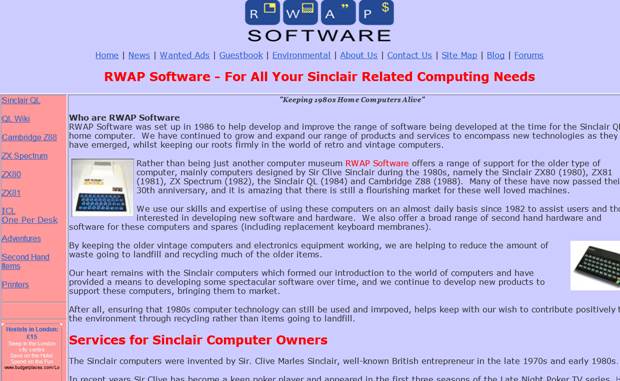
One
such specialist source of parts is RWAP Software (www.rwapsoftware.co.uk)
dealing in support for the Sinclair range of computers, including the Sinclair
QL, Cambridge Z88 and ZX Spectrum
“Many parts simply won’t be found at these
sort of more populist events, although finding whole systems might be possible”
I contacted Rich Mellor from the company to
get his take on finding retro part and he told me that the biggest problem is
that many items; microchips in particular, just aren’t made any more.
“Although you can sometimes find similar
chip on offer from suppliers in the Far East and the USA, Rich tells us, “The
minimum order quantities, coupled with carriage and import duties, can make
this an expensive exercise, particularly in the case of retro computers, as
often the code was cutting edge for the time, and may require specific tolerances
within the chips, or even undocumented features.”
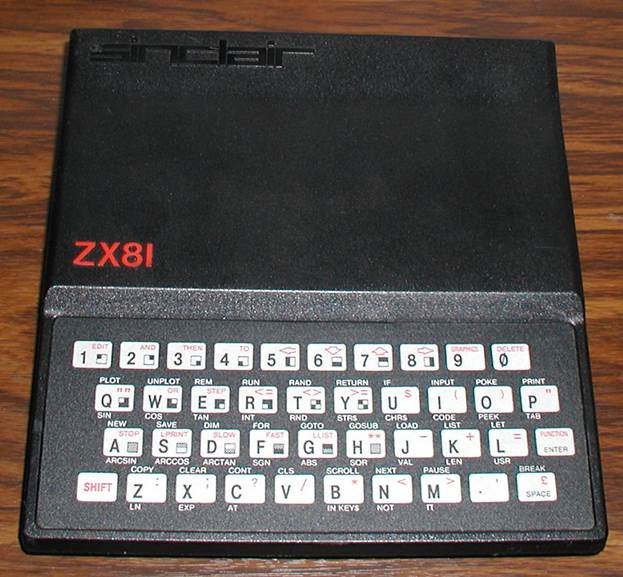
Sinclair
ZX81
In the case of RWAP Software, in the past
it has arranged for some parts to be reverse engineered in order to solve its
customers’ problems. “This is of course much easier for non-electrical
components, such as cases, or even keyboard membranes where the original
details can be worked out. When it comes to custom made chips, if there is no
detailed source code or documentation available, then you are normally left
with either obtaining supplies from second hand equipment or completely
re-engineering based on what the chip needs to achieve.”
Mellor told me about a particularly
interesting example of the problem of sourcing retro parts: the case of the
ZX-ULA2 board for the Sinclair ZX81. In this instance, the original ZX81 ULA
(Uncommitted Logic Array – a pre- fabricated chip that was customized to
Sinclair’s design) was no longer available, and any second-hand supplies might
struggle with modern televisions. “To address this issue”, he explained, “The
designer considered what the ULA does for the ZX81 and how this may be modeled
within a CPLD [Complex Programmable Logic Device], and even improved upon it to
provide additional functionality. As a result, the ZX-ULA2 was born, which uses
modern, easily obtainable parts, to provide the ZX81 with a replacement ULA,
which has composite video out, plus a Turbo mode to make the ZX81 run even more
quickly. The use of a CPLD meant that design times were reduced, as the
functionality could be tested out in software, and the chip could be
re-programmed easily to overcome any minor issues in the original design.”
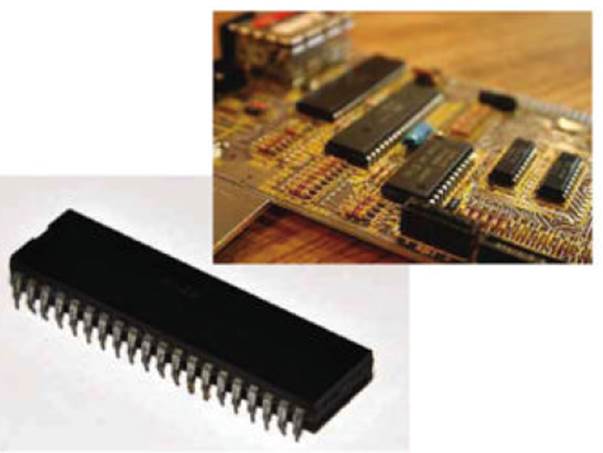
The
ZX-ULA2 was born, which uses modern, easily obtainable parts, to provide the
ZX81 with a replacement ULA, which has composite video out, plus a Turbo mode
to make the ZX81 run even more quickly
The company has also been instrumental in
getting replacement keyboard membranes reverse engineered for a range of
computers, including the ZX Spectrum, ZX80, ZX81, QL, Enterprise 64 and the Sam
Coupe. Developing strong supplier relationships has been the key, says Rich:
“It has helped that we have built up a good relationship with a company based
in Scotland, who are happy to produce short production runs- so that we can get
more limited numbers made if necessary, or even produce them on a just in time
basis.”
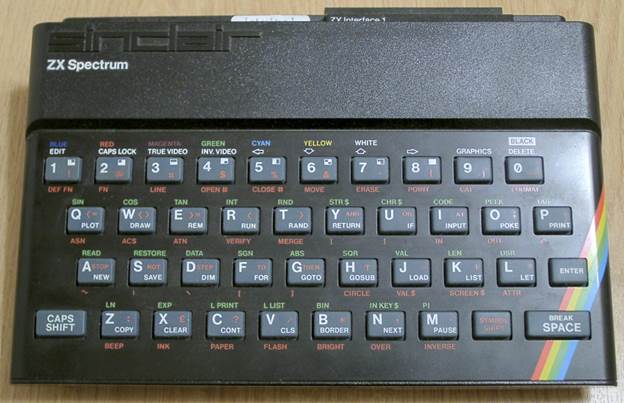
The
ZX Spectrum
That company is Mekall (www.mekall.com), which RWAP Software uses
because of its willingness to produce small production runs rather than the
thousands of units a typical minimum order for parts might require. Rich said:
“They obviously take pride in their products and we are glad to work with them
in continuing support for 1980s computers such as the Sinclair ZX81, Sinclair
ZX Spectrum and Sam Coupe.”
Sell My Retro
Interestingly, one website cropped up many
times among the various parties I contacted about sourcing retro parts – www.sellmyretro.com. Sell My Retro is a
trading website aimed at retro and vintage computer collectors, but offering
something a little more specific than eBay would. It’s completely free to list
items for sale (the site charges final value fees) and items can be listed
wither at a fixed price or sold as a standard auction item.
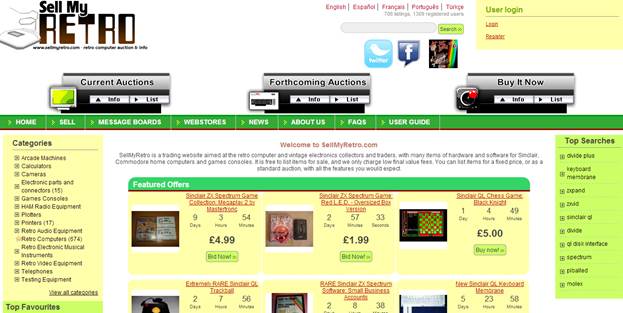
Sell
My Retro is a trading website aimed at retro and vintage computer collectors,
but offering something a little more specific than eBay would
A quick look at the site’s categories
showcases the various items that are up for grabs. Take your pick from keyboard
membranes, zip disks, old games and replacement plastic case rivets. It’s a
simple enough process. For example, at the time of writing you could buy a
brand new conversion kit if you’re bought a ZXpand Interface for use with your
Sinclair ZX81 home computer, you’d be looking at $52.85. Put your bid in, as
with any other auction site, and if you get lucky, it’s yours. It’s a no-frills
site, for sure, but for a wealth of parts at your fingertips, it’s easy to
understand why it’s rated so highly among the retro buyers’ community.
Another site that was recommended to me is www.rewind-bits.co.uk, which offers up
bits chiefly for the console gamers among you. Whether it’s Atari, the Sega
mega System or the Commodore 64, this has parts from replacement hinges, cables
and voltage regulators, right up to case shells, screens and stylus pen
replacements.
The Parts Are Out There
You’ll find plenty of other sites offering
parts for older, classic systems and consoles, too- nobody is going to tell you
to avoid the number one online auction site everybody knows all too well, for
example – but I’ve stuck within these two sites for now, as they came
recommended from the guys I spoke with and, as they’re the chaps in the know,
I’d be a fool not to go with what they say.
However you choose to source your retro
parts, whether it’s in person at a computer fair, shopping online via auction
sites or via the likes of specialists such as RWAP Software, make sure you
share your experiences with others on forums, whether those experiences are
positive or negative. Specialist disciplines such as this thrive and survive on
the feedback of the general public so if you’ve sourced a part form a cracking
source; you really ought to let others know. After all, isn’t that what makes
the retro computing community so great?